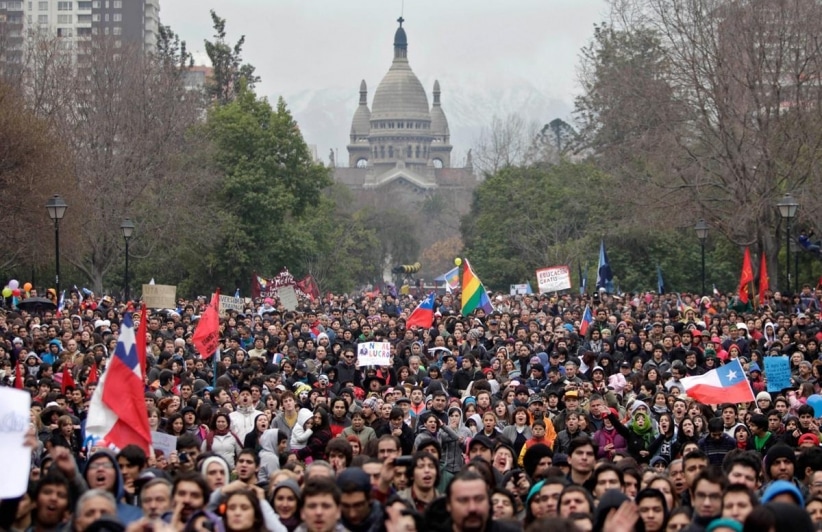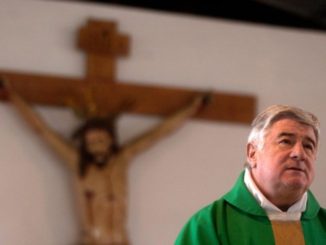
SANTIAGO – Tens of thousands of students marched in Chilean cities this week to demand improvements to the nation’s higher education system, in first protest of the southern hemisphere academic year.
The students were protesting an education reform bill they say does not go far enough in overhauling an expensive and unequal education system that dates to the dictatorship of Augusto Pinochet (1973-1990).
And there were isolated skirmishes with police in the downtown area of Chilean capital Santiago, with students hurling stones and police firing tear gas.

Student protesters argue that attempts by centre-left President Michelle Bachelet to improve quality and access to higher education have been insufficient. Reforms by her government to date do not provide enough Chileans with free university education, they say. They also complain that the government did not seek their advice when drafting legislation.
“I don’t know if the government is playing stupid. You can’t legislate without listening to the social movements,” Daniel Andrade, head of the University of Chile student union, told journalists.
Following the protest, the education committee in the lower house of Congress voted against sending the bill to the floor for debate. That will now force President Michelle Bachelet and her team to go back to the drawing board.

The bill would have expanded access to free university education, with the number of beneficiaries based on Chile’s economic growth in any given year.
As clashes erupted earlier this week, police fired tear gas and water cannon to disperse the protesters – many wearing masks and dressed in black – threw stones at the heavy contingent of riot police standing guard.
Police fired tear gas and water cannon to disperse them. The protest then unfolded peacefully, but new clashes broke out at the end.

Thirty people were arrested and six police officers injured, officials said.

Organizers said 90,000 people had joined the protest. Police put the figure at 35,000.
Presidential elections are due in Chile in November. The current frontrunner, conservative Sebastian Pinera, has indicated that he will roll back recent educational reforms if elected, preferring a system of scholarships to free tertiary education for poorer students.
That will likely put him on a collision course with the student movement.
Pinera served as president from 2006 to 2010 but saw his approval ratings plummet after a series of massive student-led demonstrations against Chile’s highly privatized education system.



